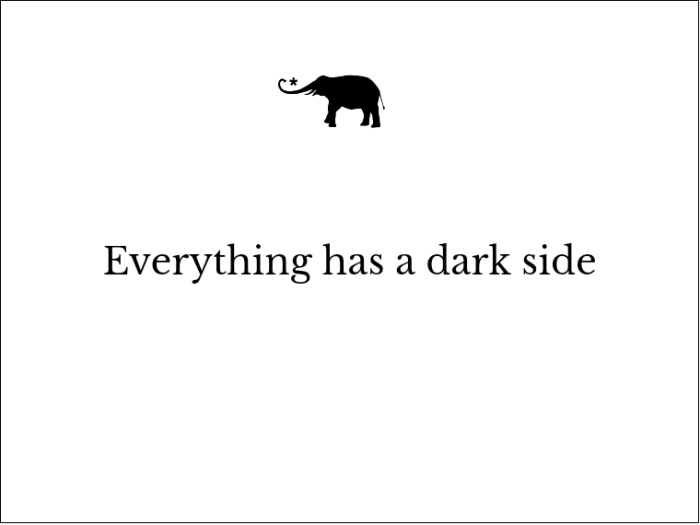Intelligence is often revered as a remarkable quality, associated with problem-solving skills, critical thinking, and academic achievements. However, like any other human trait, intelligence also possesses a darker side that is less frequently discussed. In this article, we will delve into five aspects of intelligence that may have negative implications.
1.There are more things they see, which makes them more concerned
Intelligent individuals possess a unique gift of perception, allowing them to delve into the depths of complexity and gain a comprehensive understanding of situations. This heightened awareness often leads them to notice and grasp aspects that may go unnoticed by others.
However, the realization that others may not comprehend or perceive the same nuances can burden the intelligent person with a sense of responsibility. They may feel compelled to take action because they are the sole bearers of this understanding.
Nevertheless, merely perceiving or understanding something does not automatically equip a person with the necessary tools to address it effectively. This realization can instigate excessive worry and stress in the intelligent individual.
Even if they possess the means to bring about change, they may recognize that they might have to tackle it alone. While self-reliance is often their preferred approach, it does not always represent the ideal solution.
2. Having impossible expectations is a dangerous thing
Meet Sarah, an incredibly intelligent individual who possesses an uncanny ability to excel in various domains. However, Sarah constantly finds herself grappling with the burden of impossible expectations.
Not only does she impose immense pressure on herself to consistently perform at an exceptional level, but she also feels the weight of societal expectations. The relentless demands of her work and personal life gradually take a toll, pushing her toward the edge of exhaustion.
Sarah’s ambitious nature compels her to strive for grand accomplishments without paying attention to the small steps necessary to reach her goals. As a result, she may stumble and encounter setbacks along the way.
Despite her remarkable achievements, the more Sarah succeeds, the greater the expectations become, overshadowing her human fallibility. This constant pressure and scrutiny can leave her feeling overwhelmed and misunderstood, as others fail to recognize the challenges she faces and the potential for burnout lurking beneath her intellectual brilliance.
The weight of impossible expectations can bear heavily on intelligent individuals. Their unique abilities to accomplish, think, and perceive things beyond the norm often lead to self-imposed pressure to achieve the extraordinary.
Not only do they place this burden on themselves, but they also feel the weight of expectations from others. Caught up in a whirlwind of responsibilities and tasks, they may become overwhelmed, eventually experiencing a breakdown or burnout.
Furthermore, their drive to achieve significant milestones quickly can blind them to the importance of taking small, incremental steps along the way, leading to potential failure.
The more they accomplish, the higher the bar is set for them, often causing others to forget that they are only human and susceptible to making mistakes.
3. Their self-esteem is linked to their intelligence
One downside of being highly intelligent is that individuals often tie their self-esteem, self-worth, and identity to their intelligence. The external and internal pressures to always perform perfectly can lead intelligent people down a dangerous path.
In his blog, Nemko points out that because intelligent individuals are aware of their intelligence and the admiration it garners from others, they become overly reliant on themselves. “They tend to put excessive trust in their own judgment,” Nemko explains. “Regardless of how intelligent someone is, seeking outside perspectives often leads to better decision-making.
So, ironically, they may end up making poorer choices compared to individuals with slightly lower intelligence who recognize their limitations.” Moreover, Nemko highlights that for many highly intelligent people, their careers and self-esteem are closely intertwined with their intelligence. As they age and inevitably experience cognitive decline, it can have significant practical and psychological consequences.
4. Disorders of the mind and the heart
People with high IQs and mental and emotional disorders, you know, the pesky ones that mess with our heads and hearts. Yeah, smart people can sometimes struggle with anxiety, depression, or even bipolar disorder. In addition, studies suggest that these brainiacs are more likely to get high.
Now, let me tell you about this fascinating study mentioned in an article by Origins. They took a peek into a special society called Mensa, where only the brainiest of the bunch, with IQs of 132 or higher, are welcomed. Turns out, a whopping 47 percent of these Mensa members had mental illnesses. Crazy, huh? Origins delved into possible explanations for this curious link.
They talk about things like overexcitability, genes playing a role in both intelligence and mental illness, social isolation, and the fact that these bright minds are more proactive in seeking help.
So, here’s the deal. Overexcitability can spiral into overthinking, constant worrying, and rumination, which can eventually lead to anxiety or depression. Plus, super-smart people often feel like outcasts in society. They’re like cool kids no one understands, and that isolation can really affect their mental wellbeing.
The self-awareness and ability to recognize mental health issues are traits that make them more likely to seek medical and mental support, compared to others who don’t know where to start. Almost like their brains have their own radar, they know when something is wrong.












Read 0 comments and reply